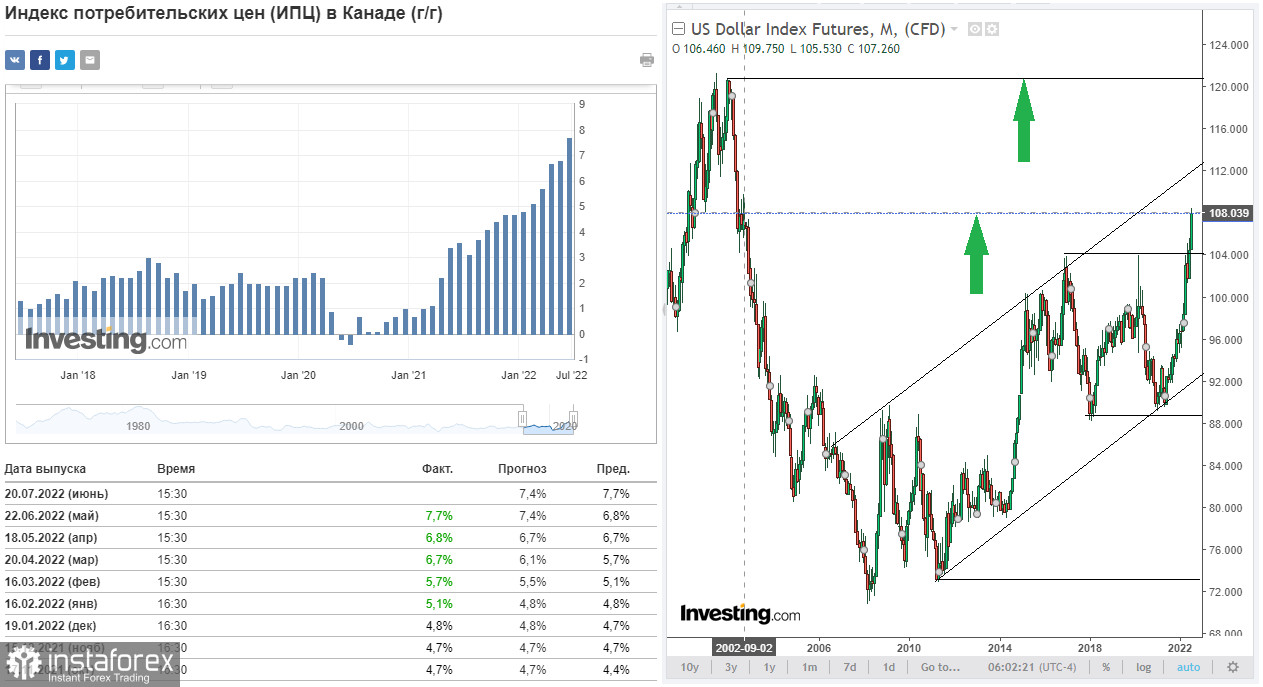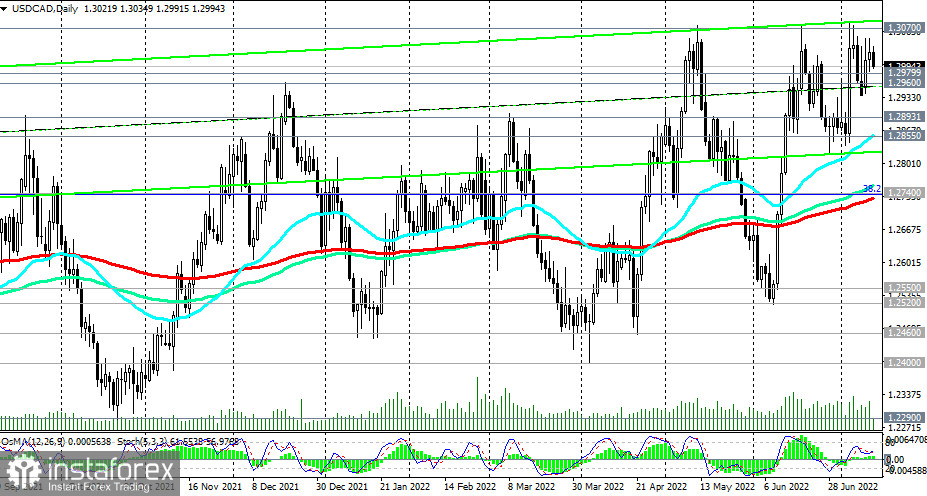The Reserve Bank of New Zealand is expected to raise the interest rate by 0.50% on Wednesday morning, bringing it to 2.05%. The RBNZ's accompanying statement said: "The Committee agreed that it remains appropriate to continue tightening monetary conditions at the pace necessary to maintain price stability and support maximum sustainable employment." It (the statement) also reported that "the committee recognized that in the short term there is a risk of higher consumer price inflation, and in the medium term there are risks of a decline in economic activity," but "decided to continue to raise the OCR (official monetary rate) to a level at which it will be confident that consumer price inflation will be established." within the target range." The RBNZ acknowledged that a sharp increase in consumer prices is possible in the short term, since the situation on the energy market remains extremely uncertain (at the moment, the inflation rate is 6.9%, which is the absolute high for 30 years).
Economists predict that by the end of 2022, the RBNZ interest rate may be raised to 3.5%, and to 4% by 2024.
The New Zealand dollar and the NZD/USD pair reacted rather restrainedly to this rather tough decision of the RBNZ, perhaps because it was expected.
In general, since the beginning of Wednesday, most of the major dollar currency pairs have been trading in a narrow range, remaining under pressure from the US dollar. It also continues to dominate the market, receiving support from the Federal Reserve, which is conducting the most stringent monetary policy (at the moment) in comparison with other major world central banks.
And, the Bank of Canada, one of the world's largest central banks, is set to announce its decision on interest rates on Wednesday.
As follows from a recent report by Statistics Canada, unemployment in June 2022 was at the level of 4.9% (against 5.1% in May, 5.2% in April, 5.3% in March, 5.5% in February, 6.5% in January 2022). The decrease in the unemployment rate is a positive factor for the CAD and for the Bank of Canada, which can act more decisively in the face of rising inflation. And in Canada, as elsewhere in the world, it is growing rapidly.

The annual consumer price index (CPI) rose in May to +7.7%, the highest level in 39 years. The annual CPI was higher than the forecast of +7.4% and the previous value of +6.8%. On a monthly basis, CPI grew by +1.4% in May (against the forecast of +1.0% and the previous value of +0.6%). The core CPI, which excludes food and energy, rose in May to +6.1% (year-on-year), also exceeding the forecast for growth of +5.9% and the previous result of +5.7%. As Carolyn Rogers, Senior Deputy Governor of the Bank of Canada, recently stated, commenting on the inflation data published at the end of June, this is an "undesirable figure." "The CPI is too high, it hurts Canadians, it keeps us up at night," Rogers said, "and it's still a long way before inflation starts to decline."
Economists believe that the Bank of Canada will accelerate the cycle of monetary policy tightening initiated by it and raise the key interest rate by 75 bps at the meeting, and then by 50 bps in September and October, thus bringing it to the level of 3.25%. In this sense, the Bank of Canada is a kind of competitor to the Fed, which is also accelerating the pace of tightening its monetary policy.
As for the USD/CAD pair, it remains in the bull market zone, above the key support levels of 1.2550, 1.2740, 1.2855

It is worth noting, however, that although the increase in the interest rate by the central bank, in principle, is a positive factor for the national currency, it is impossible to discount the strong US dollar, which is in active demand.
What can be guaranteed in this situation is a sharp increase in volatility in CAD quotes and, accordingly, USD/CAD during the announcement of the Bank of Canada's interest rate decision. The Bank of Canada will hold a press conference, which may also cause an increase in volatility, especially if the bank's management makes unexpected statements regarding the prospects of the central bank's monetary policy.
However, volatility in dollar and USD/CAD quotes will also increase today, when the latest inflation indicators for the United States will be published. Their growth is expected, which, in theory, should cause the USD to strengthen.
 English
English 
 Русский
Русский Bahasa Indonesia
Bahasa Indonesia Bahasa Malay
Bahasa Malay ไทย
ไทย Español
Español Deutsch
Deutsch Български
Български Français
Français Tiếng Việt
Tiếng Việt 中文
中文 বাংলা
বাংলা हिन्दी
हिन्दी Čeština
Čeština Українська
Українська Română
Română

